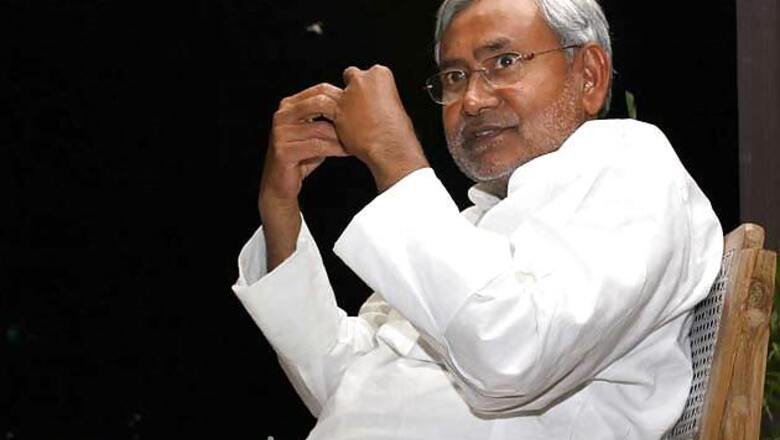
views
New Delhi: Unfazed by the Planning Commission disapproving his demand to grant special category status to Bihar, Chief Minister Nitish Kumar on Thursday made a strong pitch for it, alleging the Centre's Inter-Ministerial Group (IMG) did not consider the issue with seriousness.
Addressing a meeting of the National Development Council (NDC) chaired by Prime Minister Manmohan Singh, Kumar also demanded that the Centre should provide at least 90 per cent of the scheme expenditures as its share in central government schemes and "fix the wages under MNREGS at par with the minimum wages fixed by the state."
On the issue special status to the state, he alleged that IMG constituted by the Prime Minister "did not consider the issues spelt out with due seriousness and reached pre-ordained conclusions on parameters of special status". Kumar also demanded the constitution of an expert group to examine and recommend appropriate policy measures to overcome development disabilities of Bihar.
The Bihar Chief Minister had met the Prime Minister some time back and submitted him a detailed memorandum on why the state government was seeking special category status for Bihar.
He also met Finance Minister P Chidambaram in New Delhi on Wednesday evening soon after Planning Commission Deputy Chairman Montek Singh Ahluwalia said that Bihar does not meet the existing criteria to be granted the status of special category state.
In his speech at the NDC meeting in New Delhi, Kumar that the case of Bihar being a landlocked and a least developed state should have prompted IMG to adopt a different approach altogether.
Kumar also demanded a revised Gadgil formula for ensuring higher devolutions for a "backward state like Bihar" as an overriding priority for inclusive growth as envisaged under the 12th Five-Year Plan.
Noting that the country has shown high growth rates of 7.6 and 7.9 per cent in the 10th and 11th Five-Year Plans, the Bihar Chief Minister said, "To sustain the growth momentum at national level, special attention to the states lagging behind in terms of income, infrastructure and investment would be essential".
Kumar said that the envisaged "faster growth" was possible only if backward states were made partners in national growth. "Growth will be more inclusive and sustainable only if backward states are supported by resources and enabling policy. If this is not done, the slogan of faster, more inclusive and sustainable growth will only be a mere rhetoric and not translate into a reality," he said.
Briefing the media on the eve of the NDC meeting on Wednesday, Ahluwalia had said, "Bihar does not meet the existing criteria according to which a state is deemed eligible for special category state. We do recognise that Bihar and some parts do have a special problem and as part of BGRF (Backward Regions Grant Fund), we have Bihar package".
Special category status brings private investment in a state as investors get tax benefits. Kumar had been raising the demand for last six years. He had also handed over a six-page letter to the Prime Minister on the demand to provide the status to Bihar to spur growth.
Arunachal Pradesh, Assam, Himachal Pradesh, Manipur, Meghalaya, Mizoram, Nagaland, Sikkin, Tripura and Uttarakhand are among the states that have been granted special category status.
"Special Status for Bihar would support the state in multiple ways. The Centre will bear high percentage of (90 per cent) of all centrally-sponspored schemes. This will save our commitments of state share in central schemes and help us to take more welfare-based schemes from our saving.
"Further by giving a direct tax break both for Direct and Indirect Tax, it would catalyse the private investment flows. This will in turn open new avenues of private investments leading to certain creation of employment opportunity in the state," he said.
Kumar, who heads a JDU-BJP alliance government in Bihar, strongly favoured the idea of cash transfer in schemes but took a jibe at the Centre for "making a lot of publicity" for direct cash transfers and noted Bihar has been successfully doing so for the last four years for provision of uniforms and cycles to students.
The Chief Minister demanded that his state should be provided a additional Rs 4000 crore per year under the special plan assistance in addition to the previous liabilities during the 12th Five-Year plan to meet the "still quite high infrastructure and development plan gaps between Bihar and other states".
He also chose the occasion to express his difficulty in implementing the Right To Education (RTE) Act from April next year. "In spite of all our efforts, we are finding it difficult to be fully prepared for RTE becoming justiciable from April 2013. We demand an amendment to give us more time considering that the resources made available even by the central government has not been commensurate with the gap," Kumar said.
He said that Bihar's "demographic dividend" can add to the economic growth if higher levels of health, education and skill development are achieved and urged the Centre to move to norm-based per capita allocation of resources so that states like Bihar could secure the fundamental right to education for all children in the 6-14 age group.
Noting that despite provisions made for ensuring transparency and accountability in MNREGS there were still large-scale complaints across the country, he said, "There is a need to review the design of the scheme." Kumar resented that the central government was asking the state to bear the difference in the minimum wages fixed by the state and the wages notified by the central government. "This puts an additional financial burden on the state," he said and demanded that "states ought to have far greater flexibility in developing their plan".
He also demanded a substantial increase in power allocation from the central sector to Bihar and accelerated coal linkages for the upcoming power projects in the state. He sought an enhancement in the allocation of the unit cost of Indira Awas from existing Rs 45000 to Rs 1 lakh.











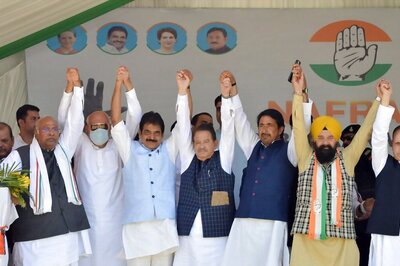
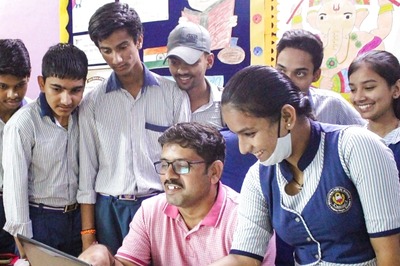

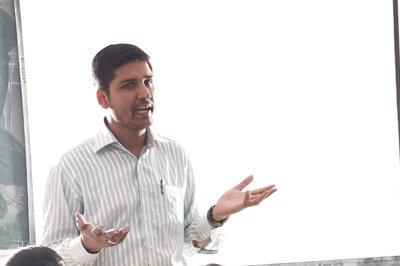
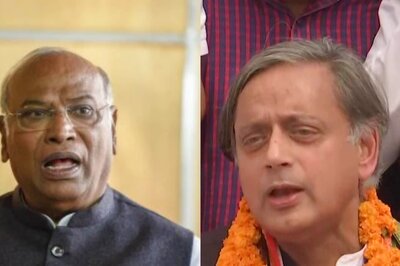
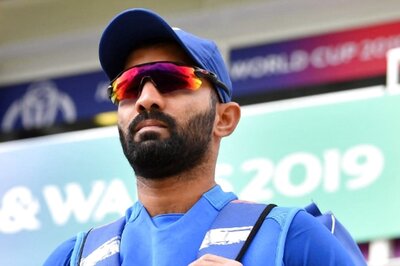
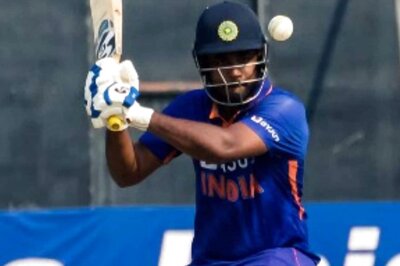

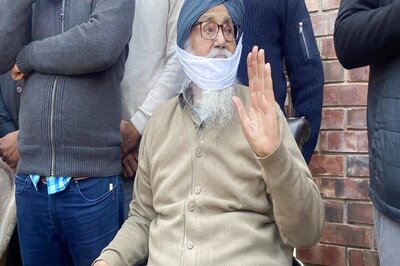
Comments
0 comment